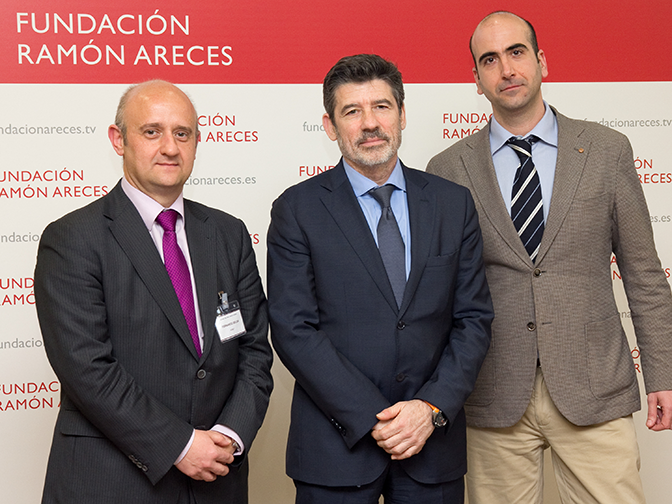

ECMWF delegates have told an international 'Big Data and Climate Change' meeting in Madrid how the Centre is implementing the EU-funded Copernicus Climate Change Service (C3S) and Atmosphere Monitoring Service (CAMS).
The event was organised by the Ramón Areces Foundation and took place from 29 February to 1 March.
ECMWF's Director of Copernicus Services, Juan Garces de Marcilla, explained that CAMS has been up and running since the summer of 2015, while C3S is making big strides towards fully operational status.
CAMS combines models and observations to monitor and forecast atmospheric pollution and greenhouse gases. The service builds on a decade of research and engagement with users in Europe and worldwide.
"CAMS now provides services on air quality and atmospheric composition, climate forcings, emissions and fluxes, ozone and ultraviolet radiation and solar radiation," Mr Garces de Marcilla told the meeting.
He noted that all products are freely available on the service’s website.
Climate Data Store
C3S aims to be an authoritative source of climate information for Europe. It already provides regular climate reanalysis updates on its website and is expected to be fully operational from 2018.
A comprehensive Climate Data Store (CDS) will eventually give access to a large range of climate observations, reanalyses, predictions and projections.
Sectoral Information Systems (SIS) will build on the CDS to deliver services tailored to the needs of particular industrial sectors. Several contracts to develop a proof-of-concept for SIS focused on the water, energy, and insurance sectors have recently been awarded.
"We are delighted with the progress being made on the Climate Data Store and Sectoral Information Systems,” Mr Garces de Marcilla said.
Toolbox
Ángel López Alós from ECMWF’s C3S Production Team told the meeting about the Climate Data Store’s planned architecture.
He explained that the CDS will provide information about past, present and future climate in terms of Essential Climate Variables and derived climate indicators.
“It will be designed as a distributed system, providing improved access to a wide variety of datasets through a single and intuitive interface,” Dr López Alós said.
He added that software functionalities in the form of a toolbox, workflows and applications will give users more complex functionality to work with the data in the CDS.
“The aim is to develop a flexible system that can meet the needs of a wide range of users, including experts and scientists,” he said.
“We face many challenges, such as the wide variety of products, users, data volumes and evolving requirements, but we are confident that we’ll be able to meet all of them.”
Top photo: Juan Garces de Marcilla (middle) and Ángel López Alós (right) at the meeting in Madrid, shown with Fernando Belda from Spain’s meteorological agency, AEMET. (© Alejandro Amador)
